Registrations of new, fully electric vans increased year-on-year in May, but their market share fell, according to new figures from the Society of Motor Manufacturers and Traders (SMMT).
The uplift of 3.5% in the month equated to a 4.2% market share – almost unchanged from last year’s 4.1%.
Year-to-date, electric van uptake has now fallen by 2.1%, delivering a 4.8% market share, down from 5.2% and somewhat shy of the zero emission vehicle (ZEV) mandate target for 2024 of 10%.
In April, battery electric van registrations accounted for just 3.6% of all new light commercial vehicle (LCV) registrations, compared with 6.6% in April last year.
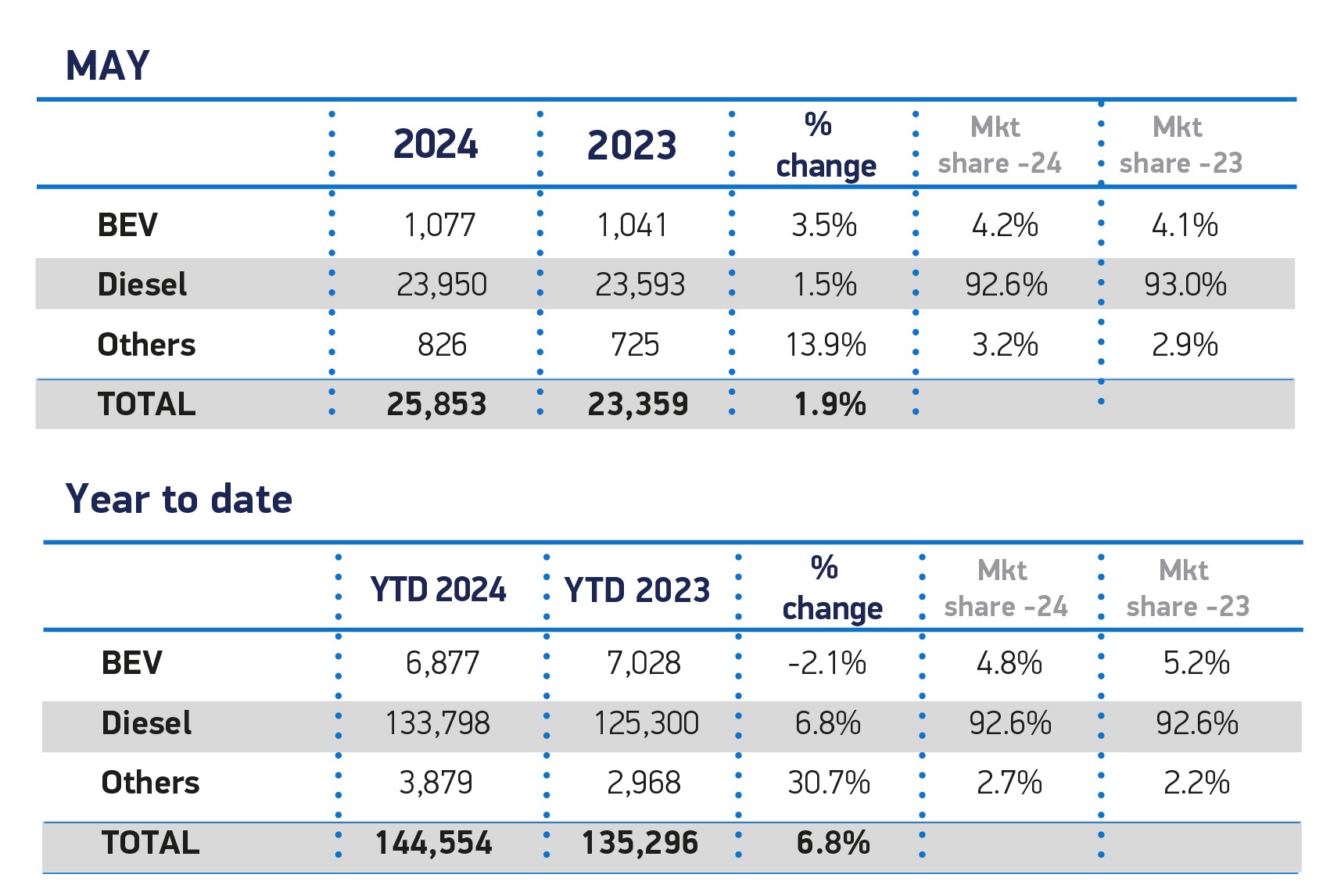
Harnessing the sustained growth in LCV demand but converting more operators to go electric will be crucial to the delivery of net zero, says the SMMT.
With Britain heading to the ballot box next month, it argues that all parties must plan to put in place measures to help UK businesses go zero emission, by sustaining existing fiscal incentives for electric and hydrogen vans, and ensuring the provision of van-specific charging infrastructure.
Barriers to electric van adoption
Fundamental barriers are preventing adoption and need urgent attention, according to the industry coalition behind the Zero Emission Van Plan.
A Van Plan spokesperson said: “The ZEV mandate has been introduced to stimulate supply, but demand is lagging.
“Electric LCVs are too expensive and struggle to cope with the operational needs of many van fleets, particularly when it comes to charging.”
For the transition to work, it is arguing for increased fiscal support, improved charging, and the removal of regulatory barriers.
“While many fleets are making the switch and seeing early success, the majority are unable to adopt greener vehicles due to the financial and operational sacrifices that are required,” the spokesperson continued.
These electric vehicle challenges, and the role Government can play in resolving them, form the basis of the Zero Emission Van Plan, which was launched in Parliament earlier this year.
The coalition behind the Plan includes the BVRLA, Logistics UK, the REA and its EV forum REcharge UK, the Association of Fleet Professionals (AFP), The EV Café and is supported by Fleet News.
“Policymakers need to take the transition to zero-emission vans more seriously,” the spokesperson continued.
“Vans are the workhorses of the UK economy and the fastest growing part of the vehicle parc. The incoming government must do more to support electric van users.”
17th consecutive month of growth
Overall, the UK’s new light commercial vehicle market posted its 17th consecutive month of growth in May, as registrations rose by 1.9% to reach 25,853 units.
It was the strongest performance for the month since 2021, which recorded the best May market in history when business investment in commercial vehicles accelerated in the wake of the pandemic.
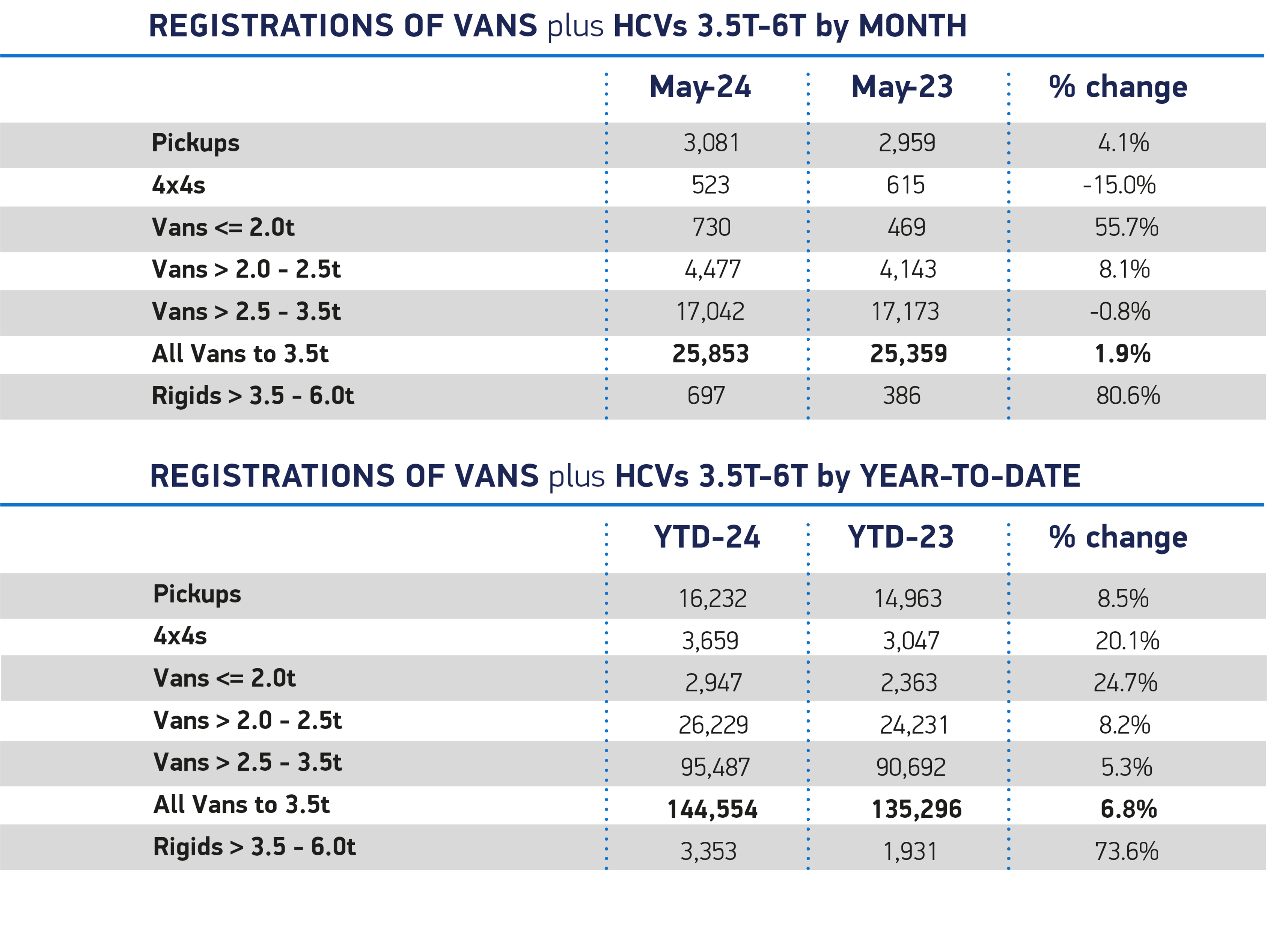
Volume growth was fuelled mainly by an 8.1% increase in uptake of vans weighing more than 2.0t up to 2.5t.
Light vans weighing less than 2.0t recorded the largest proportional growth, of 55.7%, although the market segment is subject to volatility arising from low volumes.
The 4x4 market, subject to the same small volume variations, recorded a decline of 15.0%, while pick-ups grew by 4.1%.
As ever, large vans weighing more than 2.5t up to 3.5t comprised the vast majority of the market (65.9%), with a slight decline of 0.8%.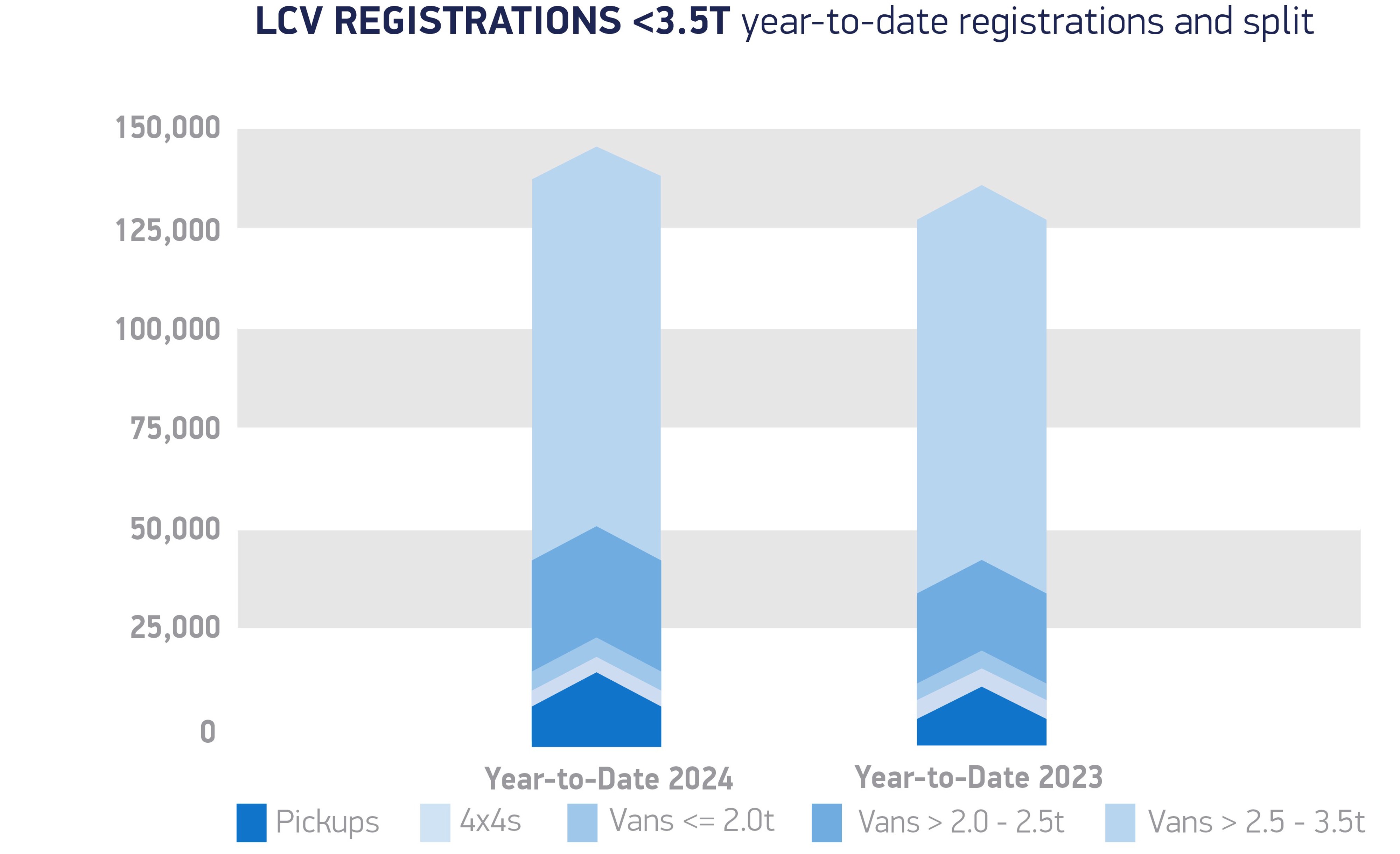 The Ford Transit Custom was the top selling model in May, with 3,189 vans registered, maintaining its year-to-date first place ranking after selling 17,185 units.
The Ford Transit Custom was the top selling model in May, with 3,189 vans registered, maintaining its year-to-date first place ranking after selling 17,185 units.
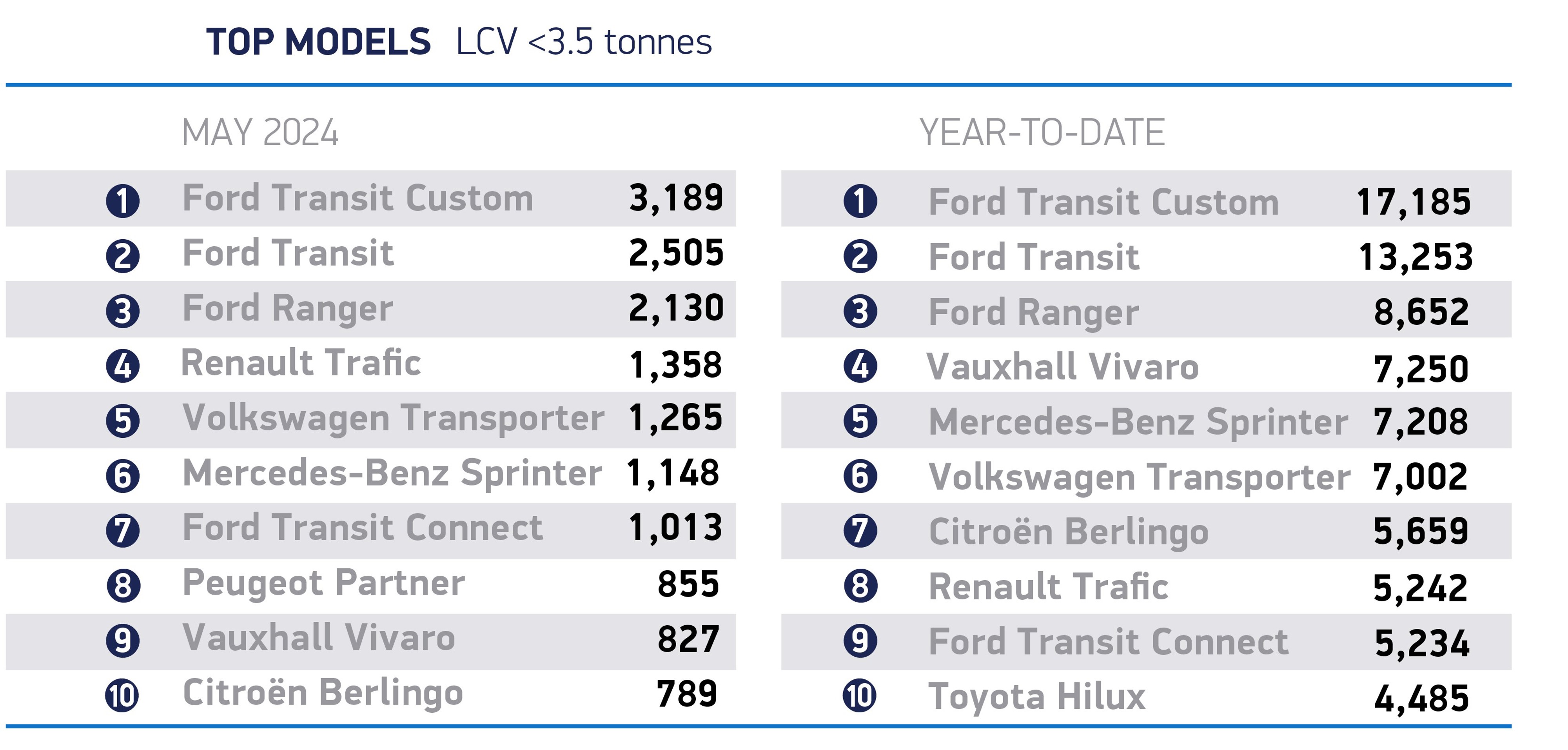
SMMT chief executive, Mike Hawes, said: “The UK van market’s 17-month run of growth is playing a crucial part in renewing the fleet with the latest, cleanest vehicles.
“However, convincing businesses that now is the time to switch to zero emission operations remains a challenge.
“With an expanding choice for every use case now available, the next Government must take steps to recharge the zero emission van market, an essential part of the net zero economy every party wants.”
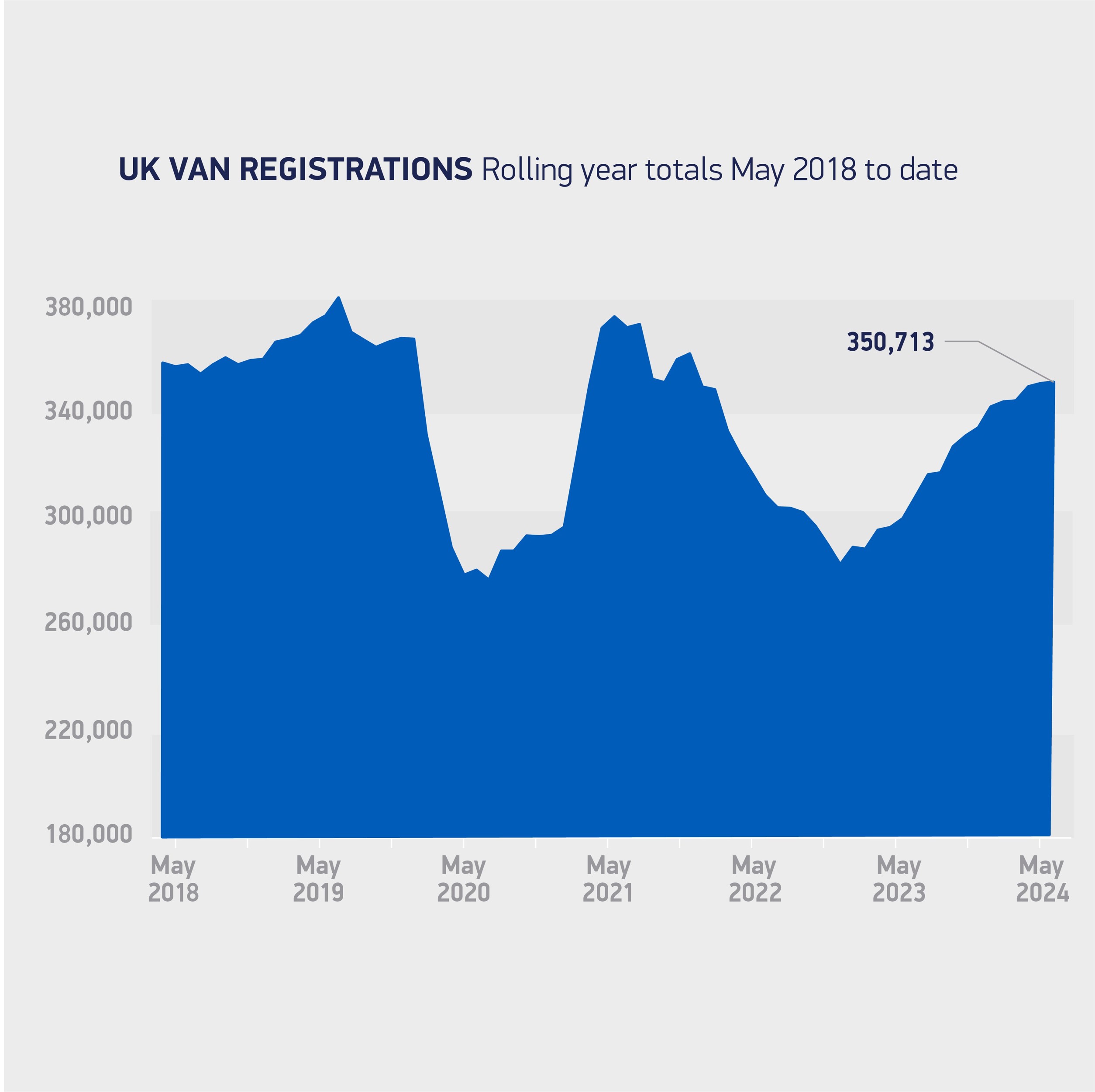
Sue Robinson, chief executive of the National Franchised Dealers Association (NFDA), which represents franchised car and commercial vehicle retailers in the UK, says it is clear that the new electric van market requires Government support, particularly since its market share remains lower than it was at this same point last year.
“As such, there are certainly areas in the van market which will need addressing from the next Government,” she said.
“Yesterday, NFDA released its 2024 General Election manifesto which includes removing unfair regulations for heavier, electric vans and increasing HGV MOT capacity by introducing delegated testing.
“It is crucial that the next Government incentivises and increases consumer confidence in electric vans, particularly amidst ZEV mandate targets.”



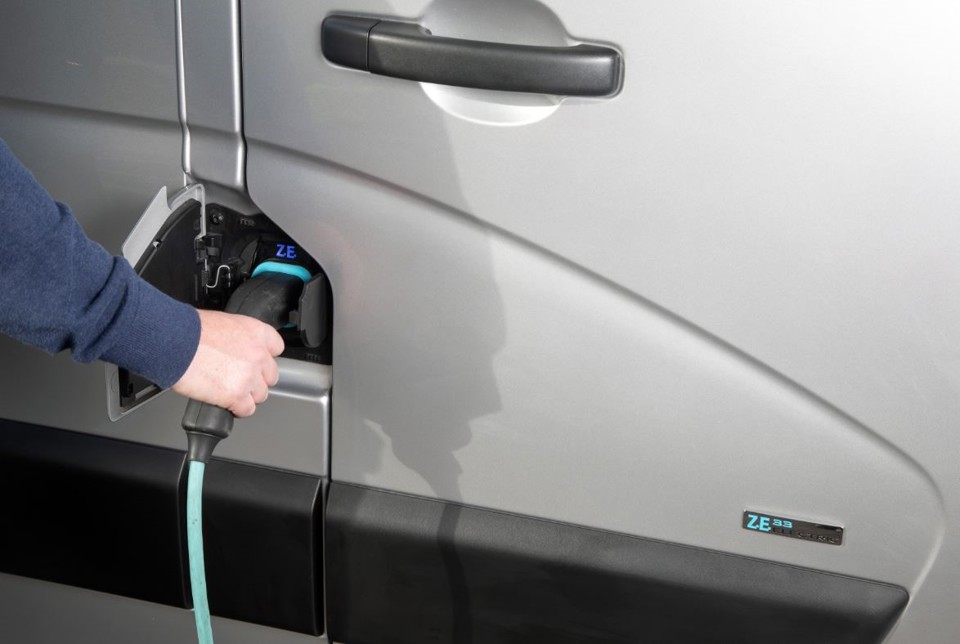

















Login to comment
Comments
No comments have been made yet.